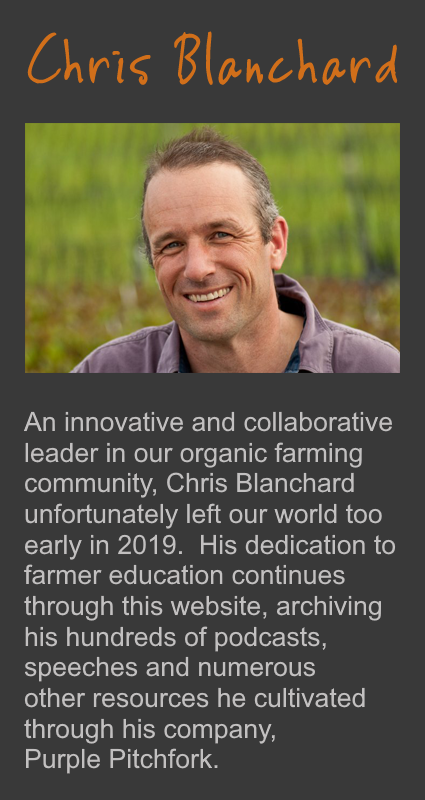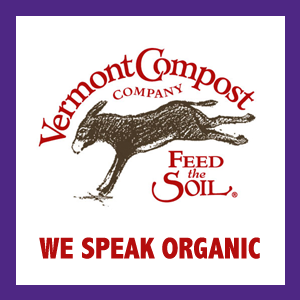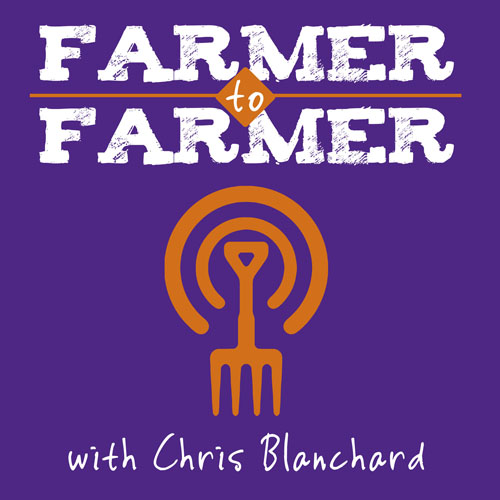Over the last twelve years, I’ve worked hard to develop systems at Rock Spring Farm that consistently provide our customers with clean, ready-to-use vegetables and herbs. As the farm grew beyond the size that could be operated by just one or two individuals, I’ve had to learn how to communicate the how-and-why of what we do to an ever-growing and ever-changing crew of individuals who flow through this operation from year to year.
I’ve had ample opportunity over the last few years to learn that I can’t possibly do it all myself. This wasn’t an easy lesson for this farmer to learn. I didn’t get into this business to manage people – in fact, like most farmers, I didn’t get into this business to manage a business! I got into this business to drive tractors and dig carrots and listen to the birds sing. But having employees on the farm enables me to make a living at the same time that it allows me the flexibility to pursue other projects beyond the day to day work of growing rutabagas.
Having well-trained and empowered employees also has a tremendous impact on my and my family’s quality of life. Without a competent and invested crew, I wouldn’t have the ability to leave the farm for days at a time on vacation, or even to attend mid-day events in town on days when we need to pack CSA boxes. And it’s not just vacations, but my ability to have an impact on the world of organic farming by serving actively on non-profit boards and providing education, outreach, and consulting to farmers around the country (not to mention co-directing the MOSES Organic Farming Conference).
On a small, diversified operation like Rock Spring Farm (we are the largest organic vegetable farm in Northeast Iowa, but still a rather small operation in the overall scheme of organic produce), everybody plays a variety of different roles on the farm. We don’t have a food safety manager who dedicates all of their time to watching out for regulatory and common-sense compliance; even a packing shed manager ends up riding on a transplanter. The fact that everybody has complicated and multi-faceted roles to play on the farm means that everybody needs access to a diverse array of knowledge about how to accomplish just about every task on the farm.
Last fall, when we decided to pursue a food safety certification through the USDA-GAPs program, we had to begin to document our procedures and improve our record-keeping to demonstrate that we did indeed implement the procedures we had documented. This has led to an effort to document our practices throughout the farm, an ongoing process that we expect to finish this winter. While’s it’s not a substitute for elbow-to-elbow training, a good operations manual will help ensure the continued smooth operation of the farm, and the consistent production of good food, good soil, and a great quality of life for everybody involved in the farm.
I’ve had ample opportunity over the last few years to learn that I can’t possibly do it all myself. This wasn’t an easy lesson for this farmer to learn. I didn’t get into this business to manage people – in fact, like most farmers, I didn’t get into this business to manage a business! I got into this business to drive tractors and dig carrots and listen to the birds sing. But having employees on the farm enables me to make a living at the same time that it allows me the flexibility to pursue other projects beyond the day to day work of growing rutabagas.
Having well-trained and empowered employees also has a tremendous impact on my and my family’s quality of life. Without a competent and invested crew, I wouldn’t have the ability to leave the farm for days at a time on vacation, or even to attend mid-day events in town on days when we need to pack CSA boxes. And it’s not just vacations, but my ability to have an impact on the world of organic farming by serving actively on non-profit boards and providing education, outreach, and consulting to farmers around the country (not to mention co-directing the MOSES Organic Farming Conference).
On a small, diversified operation like Rock Spring Farm (we are the largest organic vegetable farm in Northeast Iowa, but still a rather small operation in the overall scheme of organic produce), everybody plays a variety of different roles on the farm. We don’t have a food safety manager who dedicates all of their time to watching out for regulatory and common-sense compliance; even a packing shed manager ends up riding on a transplanter. The fact that everybody has complicated and multi-faceted roles to play on the farm means that everybody needs access to a diverse array of knowledge about how to accomplish just about every task on the farm.
Last fall, when we decided to pursue a food safety certification through the USDA-GAPs program, we had to begin to document our procedures and improve our record-keeping to demonstrate that we did indeed implement the procedures we had documented. This has led to an effort to document our practices throughout the farm, an ongoing process that we expect to finish this winter. While’s it’s not a substitute for elbow-to-elbow training, a good operations manual will help ensure the continued smooth operation of the farm, and the consistent production of good food, good soil, and a great quality of life for everybody involved in the farm.




 RSS Feed
RSS Feed
